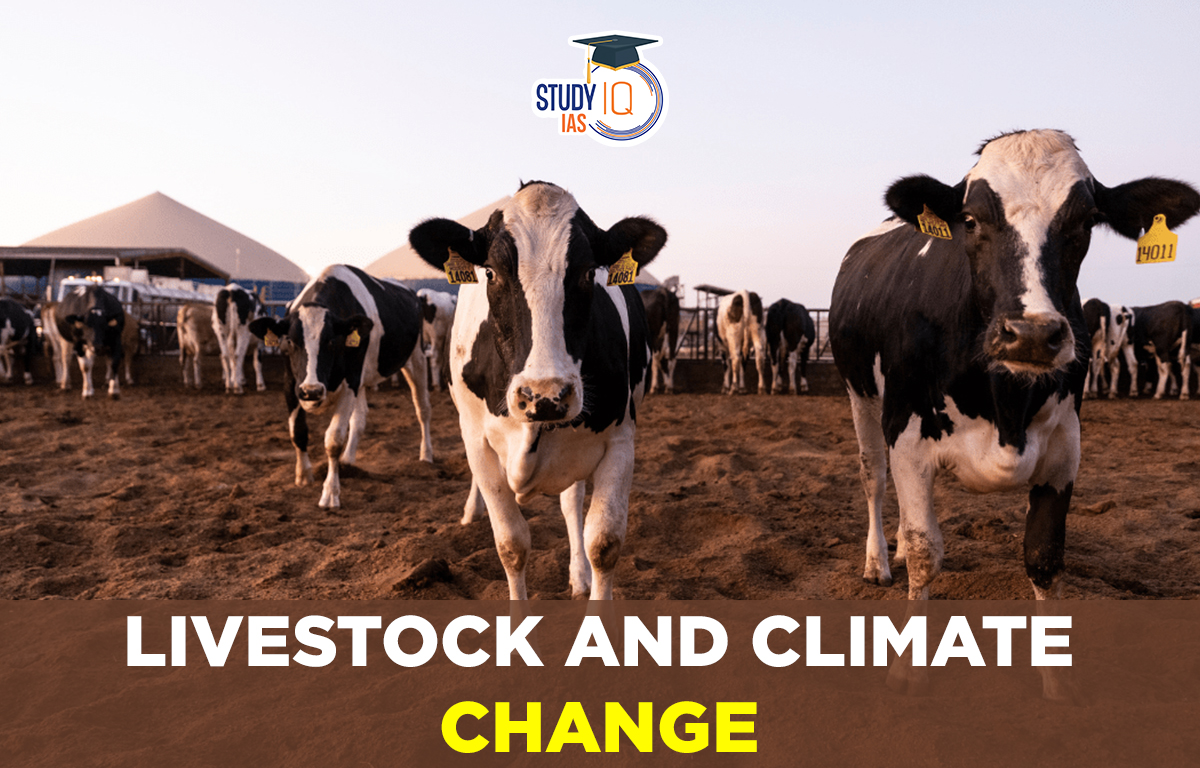Table of Contents
In News: Microsoft co-founder Bill Gates has invested in a climate technology start-up that aims to curtail the methane emissions of cow burps.
More on Livestock and Climate Change
- Rumin8, the start-up has received funding worth $12 million from Breakthrough Energy Ventures, which Gates created in 2015.
- Rumin8 aims to develop a variety of dietary supplements to feed to cows in a bid to reduce the amount of methane they emit into the atmosphere.
- The supplement includes red seaweed, which is believed to drastically cut methane emission from cows.
Methane
- Methane is a hydrocarbon that is a major component of natural gas. Methane is also a greenhouse gas (GHG).
- Anthropogenic emission sources include landfills, oil and natural gas systems, agricultural activities, coal mining, stationary and mobile combustion, wastewater treatment, and certain industrial processes.
- Methane is the second most abundant anthropogenic GHG after carbon dioxide (CO2), accounting for about 20 per cent of global emissions.
- China, the United States, Russia, India, Brazil, Indonesia, Nigeria, and Mexico are believed to be responsible for nearly half of all anthropogenic methane emissions.
Methane Emissions from Livestock
- Ruminant species (such as cows, sheep, goats, and buffaloes) are hooved grazing herbivores that chew cud.
- They have a special type of digestive system that allows them to break down and digest food that non-ruminant species would be unable to digest.
- Stomachs of these animals have four compartments, one of which, called rumen, helps them to store partially digested food and let it ferment.
- This partially digested and fermented food is regurgitated by the animals to chew it and finish the digestive process.
- Carbohydrate fermentation in rumen leads to production of CO2 and hydrogen. These are used by archaea to produce methane, which the animals release through burping.
- Since there are large numbers of cattle and sheep on farms in dairy-producing countries, these emissions contribute a significant volume.
- It is estimated that the ruminant digestive system is responsible for 27 per cent of all methane emissions from human activity.

Problems due to Methane Emission
- Climate change: Methane is one of the main contributors of climate change, responsible for 30 per cent of the warming since preindustrial times, second only to carbon dioxide.
- Methane is 80 times more potent at warming than carbon dioxide, over a 20-year period.
- Ground-level ozone: Methane also contributes to the formation of ground-level ozone, a colourless and highly irritating gas that forms just above the Earth’s surface.
- According to some reports, exposure to ground-level ozone could be contributing to 1 million premature deaths every year.
- Heating potential: Even though methane has a lower lifetime, it is roughly 25 times more powerful at trapping heat in the atmosphere and has an important short-term influence on the rate of climate change.
Efforts to Mitigate Methane Emissions
- Efforts have been going on to curb methane emissions from ruminant species. They have been trying to make these animals more sustainable and less gassy.
- Livestock feed: A study has found that adding seaweed to cow feed can reduce methane formation in their guts by more than 80 per cent.
- Gene modification: Scientists are also trying to find gene-modifying techniques to curtail methane emissions in these animals.
- Scientists in New Zealand have started breeding sheep that emit lower amounts of methane.
Efforts in India: ‘Harit Dhara’
- ICAR has developed an anti-methanogenic feed supplement called ‘Harit Dhara’.
- It not only cuts down their methane emissions by 17-20%, but also results in higher milk production and body weight gain.
- Working:
- Harit Dhara works by decreasing the population of protozoa microbes in the rumen, which is responsible for hydrogen production and making it available to the archaea for the reduction of CO2 to methane.


 What is Tensor Processing Unit (TPU)?
What is Tensor Processing Unit (TPU)?
 SSC CGL Syllabus 2025 for Tier 1 and Tie...
SSC CGL Syllabus 2025 for Tier 1 and Tie...
 Justice BR Gavai will take oath as 52nd ...
Justice BR Gavai will take oath as 52nd ...





















